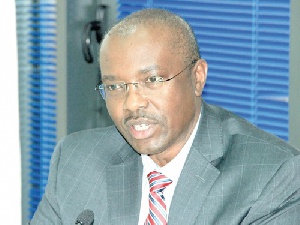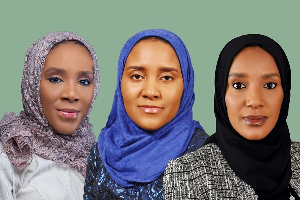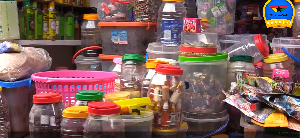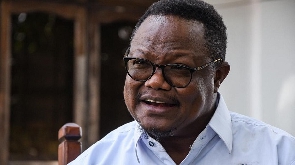Efforts by managers of Ghana’s economy to restore credibility and regain investor confidence could be yielding results as international finance institutions are providing funds and guaranteeing Ghana’s access to substantial private funds for development.
Last week, the World Bank’s Board of Directors approved a record investment of US$700 million in guarantees for Ghana’s Sankofa Gas Project.
The guarantees, the largest ever for the country’s energy sector, is set to rake in over $10billion in revenues through Foreign Direct Investment over the next 20 years.
World Bank Country Director for Ghana, Mr Henry Kerali has praised Ghanaian authorities for ensuring the right environment for investment, especially the Sankofa Gas Project.
“We will be working with Ghana over the next coming years to ensure that its macro-economic framework will be appropriate for encouraging inclusive growth of the country,” he says.
Mr Kerali recalls that “Ghana has had a long-standing reputation of success in sub-Saharan Africa and it is something that we at the World Bank wish to help sustain.”
He trusts that the Bank’s three-year energy support programme will reduce the level of disruptions in the sector, particularly electricity supply.
“This is quite a significant increase in Ghana’s revenue earnings and also a significant boost to the GDP growth of Ghana, much of which will be used in the social sectors in addition to improving infrastructure and other investments in the country,” he notes.
The Bank on July 1 this year announced the approval of US$550million in support of Ghana’s development.
The amount is made up of US$150million for the execution of development projects in the 2015 budget and US$400million to be used to support Ghana's future external debt financings.
The Bank in the first quarter of 2015 described Ghana’s public debt stock as high, but stabilising due to primary fiscal deficit reduction.
“The Current account deficit is falling, indicating less pressure on the currency in the future,” the Bank noted.
It will be recalled that the International Monetary Fund (IMF) after its first review meeting of Ghana’s performance under the three-year bailout package praised government's commitment to the Fund's programme and gave the green light for the release of the second tranche of about $100 million which is due this month.
“The programme is on track, with all performance criteria met except for the ceiling on central bank financing to the government which was technically missed by a small margin", The IMF said in a statement.
These interventions come in the wake of the fact that the Ghanaian economy has been bedevilled with high inflation ( now 17.1 per cent) , a depreciating local currency, an ailing manufacturing sector and a public debt stock of GH¢90 billion all of which have occasioned a downward revision of the country’s Gross Domestic Product (GDP) to 3.5 percent.
Experts are however of the view that in spite of the existing economic challenges, the tremendous support from the World Bank Group is a show of renewed confidence in Ghana’s economy.
According to the experts, the World Bank is interested in supporting the economy of Ghana because of the strategies managers of the economy have put in place in the past two years to resolve the crisis.
“Most of the strategies are aimed at protecting the medium term prospects of the country which are key to sustaining the economy,” says Economist Dr John Gatsi.
According to him, the interventions from the Bretton Woods Institution give credence to the fact that the managers of Ghana’s economy are regaining the confidence of donors.
“Very few countries attract such support from the World Bank. In other words what the Bank is telling Ghana is that your strategies are in line with what we see for your economy,” he states.
Other experts such as Dr Raziel Obeng-Okon of GIMPA point out that the Bank is satisfied with measures taken by government to secure stability of the economy in the short to medium term.
“Inflows from the Eurobond and cocoa credit facility will certainly bolster the central bank’s reserves and support the stability of the currency in the short term,” he said
According to him, the current economic challenges make it imperative to put more weight on stability, with the hope that it gives birth to growth in the medium term.
“The medium to long-term prospects remain bright only if we manage the short term imbalances well by stabilising the economy in 2015,” he adds.
The experts are however warning against the temptation for government to go borrowing and investing in sectors that may be unable to pay for the loans taken.
Government, Dr Obeng-Okon suggests needs to continue with its fiscal consolidation but has to take a second look at its monetary policy in the area of interest rates and inflation.
Lack of fiscal discipline in the management of the economy led to the loss of policy credibility and investor confidence, compelling government to approach the IMF in August 2014 for a bailout programme.
Business News of Sunday, 9 August 2015
Source: The Finder













